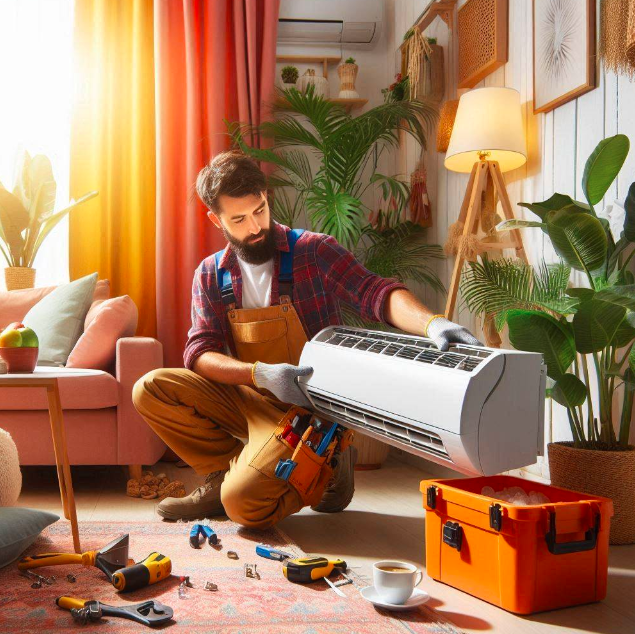
When your air conditioner (AC) stops working in the middle of a heatwave, it can be a frustrating and uncomfortable experience. To help you get to the bottom of the issue, we’ve compiled a comprehensive guide to common reasons why your AC may not be working and how you can fix it.
1. Power Issues
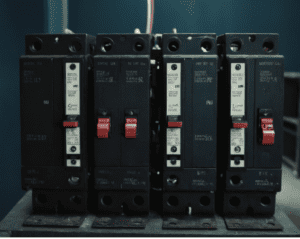
One of the first things to check is whether your AC is receiving power. A tripped circuit breaker or a blown fuse could be the reason your AC isn’t turning on. Ensure that your thermostat is set to “cool” and the temperature is set below the current room temperature.
DIY Fix: Check your electrical panel and reset the breaker or replace the fuse if necessary. If this happens frequently, it may indicate a more serious problem.
2. Thermostat Problems
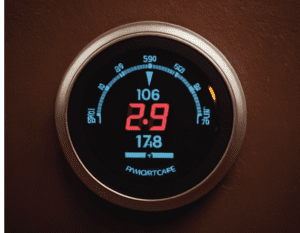
If your thermostat is malfunctioning, it might not communicate properly with your AC unit. Check if the display is working and replace the batteries if needed. If your thermostat is old, consider upgrading to a newer, programmable model.
DIY Fix: Visually inspect accessible wiring for signs of damage. However, for safety reasons, it’s best to have a licensed electrician handle any wiring issues.
3. Dirty Air Filters
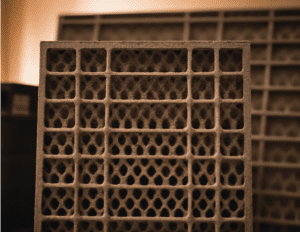
Clogged or dirty air filters can restrict airflow, causing your AC to work inefficiently or not at all.
DIY Fix: Replace or clean your air filter every 1-3 months, depending on usage and environmental factors.
4. Refrigerant Leaks
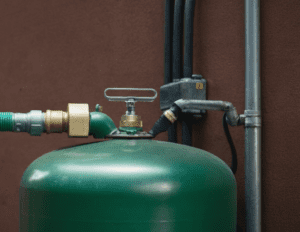
Low refrigerant levels can prevent your AC from cooling properly. Signs of a refrigerant leak include ice formation on the evaporator coils and hissing noises. A professional technician should handle refrigerant issues.
5. Frozen Evaporator Coils
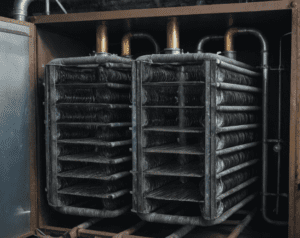
Evaporator coils can freeze due to restricted airflow or low refrigerant levels. Turn off your AC and let the coils thaw before turning it back on. If the problem persists, call a professional.
DIY Fix: Turn off the AC and let it thaw completely. Check and replace the air filter if it’s dirty. If the problem persists, you may have a refrigerant leak that requires professional attention.
6. Dirty Condenser Coils
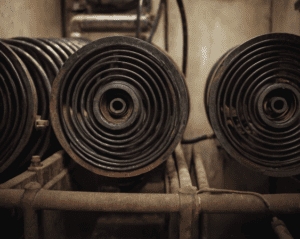
The condenser coils in your outdoor unit can become dirty over time, reducing efficiency. Regular maintenance, such as cleaning the coils, can help keep your AC running smoothly.
7. Fan Issues
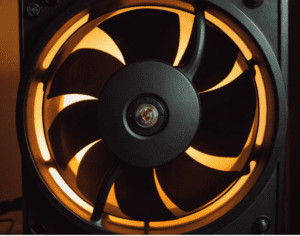
If the fan in your AC unit isn’t working, it can’t circulate air properly. Check for any obstructions and ensure the fan motor is functioning. A broken motor may need to be replaced.
8. Ductwork Problems
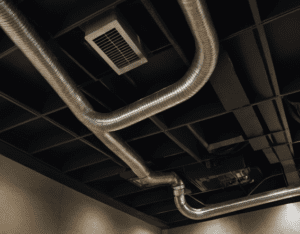
Leaky or damaged ductwork can result in poor airflow and uneven cooling. Inspect your ducts for leaks and seal them with duct tape or hire a professional for repairs.
9. Drainage Problems
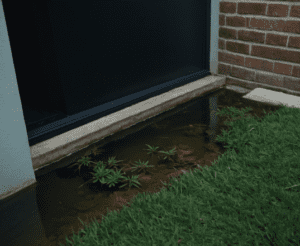
If the condensate drain is clogged, water can back up and cause damage to your AC unit. Ensure the drain line is clear and flowing properly.
10. Sensor Issues
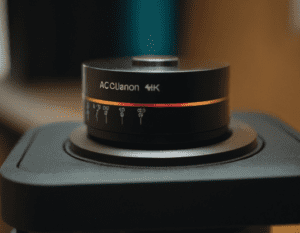
Some AC units have a sensor that measures the temperature of the air coming into the unit. If the sensor is misaligned or faulty, it can cause erratic behavior. Adjust the sensor to its proper position or replace it if necessary.
11. Extreme Heat
During heatwaves, your AC might struggle to keep up with demand, especially if it’s not properly sized for your space.
DIY Fix: Help your AC by using fans, closing blinds during the hottest parts of the day, and avoiding heat-generating activities indoors.
12. Blocked Condenser Unit
The outdoor condenser unit needs proper airflow to function correctly. Debris, vegetation, or objects too close to the unit can impede its operation.
DIY Fix: Clear a 2-3 foot space around your outdoor unit. Remove any debris and trim back vegetation.
Related Information
Here is a detailed table that summarizes the common issues and potential solutions for why your AC might not be working:
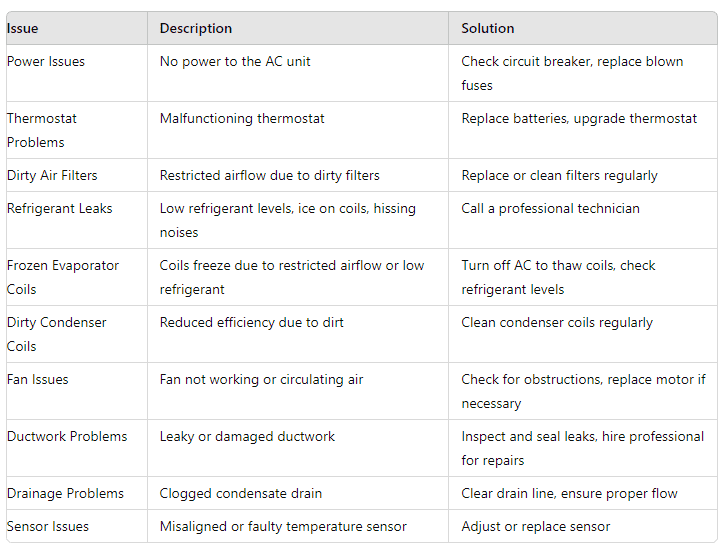
When to Call a Professional
While some AC issues can be resolved with DIY methods, others require professional expertise. Contact an HVAC professional if:
- You suspect a refrigerant leak
- The compressor isn’t working
- There are unusual noises or odors
- Your energy bills have suddenly increased
- The system frequently trips the circuit breaker
Preventive Maintenance Tips
To keep your AC running smoothly:
- Change air filters regularly
- Schedule annual professional maintenance
- Keep the outdoor unit clean and unobstructed
- Use a programmable thermostat to optimize efficiency
- Insulate your home properly to reduce AC workload
Repair vs. Replace: Making the Right Choice
Consider replacing your AC if:
- It’s more than 10-15 years old
- Repairs would cost more than half the price of a new unit
- Your energy bills are consistently high
- The system uses R-22 refrigerant (which is being phased out)
A new, energy-efficient AC can save you money in the long run and provide better cooling performance.
FAQs
Q: Why is my AC running but not cooling?
This could be due to a dirty air filter, low refrigerant levels, or a malfunctioning compressor. Check and replace the air filter, and if the problem persists, call a professional technician.
Q: How often should I replace my AC filters?
It’s recommended to replace or clean your air filters every 1-3 months, depending on usage and the type of filter.
Q: Can I fix a refrigerant leak myself?
No, refrigerant leaks should be handled by a certified technician. Attempting to fix it yourself can be dangerous and may void your warranty.
Q: What should I do if my AC is freezing up?
Turn off the AC to allow the coils to thaw. Check for restricted airflow or low refrigerant levels. If the issue continues, contact a professional.
Q: How can I improve the efficiency of my AC?
Regular maintenance such as cleaning coils, replacing filters, and checking refrigerant levels can help improve efficiency. Additionally, ensure your home is well-insulated and seal any leaks in the ductwork.
If you follow these guidelines and perform regular maintenance, you can keep your AC running smoothly and efficiently, ensuring a comfortable indoor environment even during the hottest days.
Conclusion
Understanding why your AC isn’t working is the first step to solving the problem. By following these troubleshooting tips and maintenance advice, you can keep your home cool and comfortable. Remember, when in doubt, it’s always best to consult with a qualified HVAC professional to ensure your system is running safely and efficiently.


























